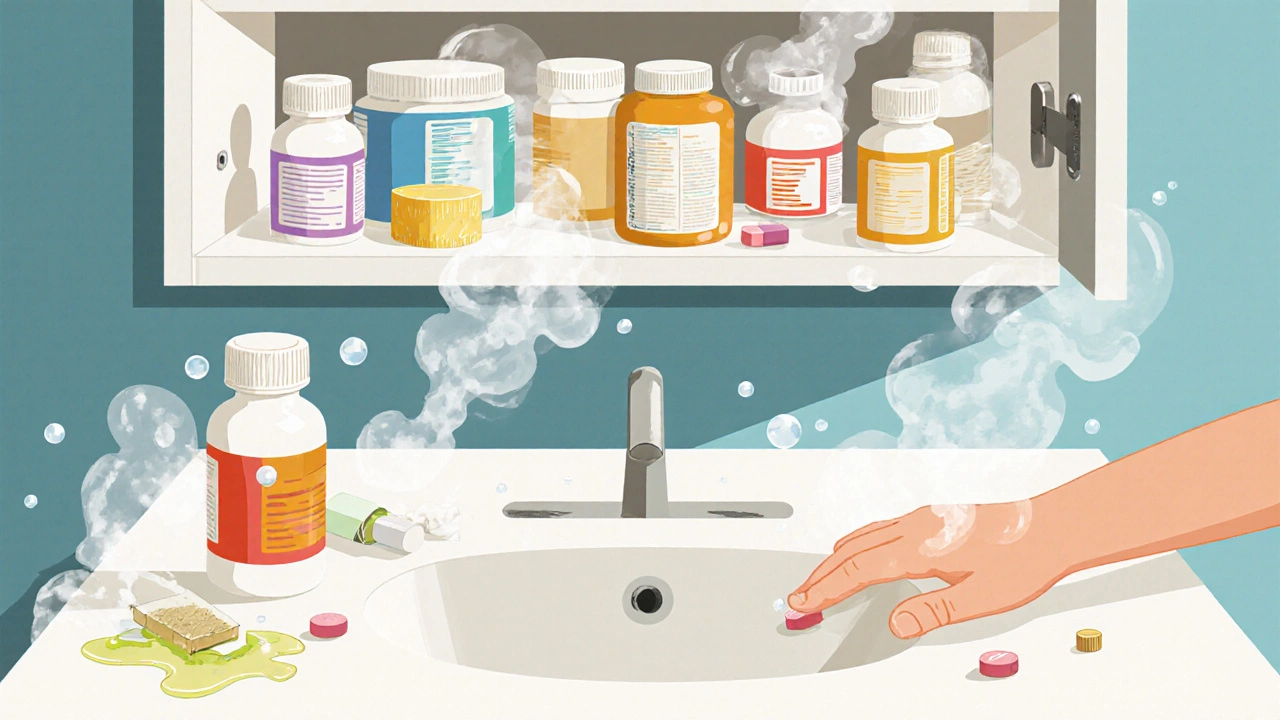Safe Medicine Storage: Keep Your Pills Secure and Effective
When you think about safe medicine storage, the practice of keeping pharmaceuticals in conditions that preserve their strength and prevent accidental access. Also known as medication safety, it’s not just about locking up pills—it’s about stopping poisonings, preventing overdoses, and making sure your drugs actually work when you need them. Every year, over 60,000 children in the U.S. end up in the emergency room because they got into someone else’s medicine. And it’s not just kids—older adults often mix up bottles, take expired pills, or leave medications in hot bathrooms where they break down. Safe medicine storage isn’t a suggestion. It’s a basic health habit.
Think about your medication safety, the system of practices that protect patients from harm caused by improper drug use or storage. It includes where you keep your pills, how you label them, and whether you check expiration dates. A fentanyl patch left on a nightstand can be deadly if a child finds it. A bottle of amoxicillin stored in a steamy bathroom loses potency fast. And if you’re taking multiple drugs—like linezolid or tamoxifen—storing them together without labels can lead to dangerous mix-ups. The FDA says nearly half of all prescription errors happen because of poor storage or labeling, not because the medicine itself is flawed.
Your childproof medicine, any storage method or container designed to prevent young children from accessing potentially harmful medications doesn’t have to be fancy. A locked cabinet, a high shelf out of reach, or even a locked box in a closet works. Don’t rely on child-resistant caps alone—they’re not foolproof. Kids as young as two can open them. And don’t store medicines where you keep your vitamins or supplements. Mixing them increases the chance of accidental double-dosing. If you have fentanyl patches, methimazole for your cat, or any opioid, keep them separate from everything else. Heat and moisture are the enemy. Don’t store pills in the bathroom, on the kitchen counter, or in your car. Temperature changes can turn a life-saving drug into a useless one.
Expired drugs aren’t just weak—they can be risky. Studies show that some antibiotics lose effectiveness after expiration, which can lead to untreated infections. Other drugs, like nitroglycerin or insulin, can become dangerous if they break down. Always check the date. If you’re unsure, toss it. Most pharmacies will take back old meds for safe disposal. And if you’re sharing meds with a family member—like giving valacyclovir to a child or using someone else’s Compazine—stop. That’s not safe medicine storage. That’s a recipe for harm.
What you’ll find below isn’t just advice. It’s real-world guidance from people who’ve seen the consequences of poor storage. From how heat affects fentanyl patches to why generic meds need clear labels, these posts give you the exact steps to protect your family, your money, and your health. No fluff. Just what works.

Medication Storage and Authenticity: How to Protect Your Home Supply from Counterfeits and Accidents
Learn how to store medications safely at home to prevent accidental poisonings, teen misuse, and counterfeit drug risks. Simple steps can protect your family and keep your meds effective.
